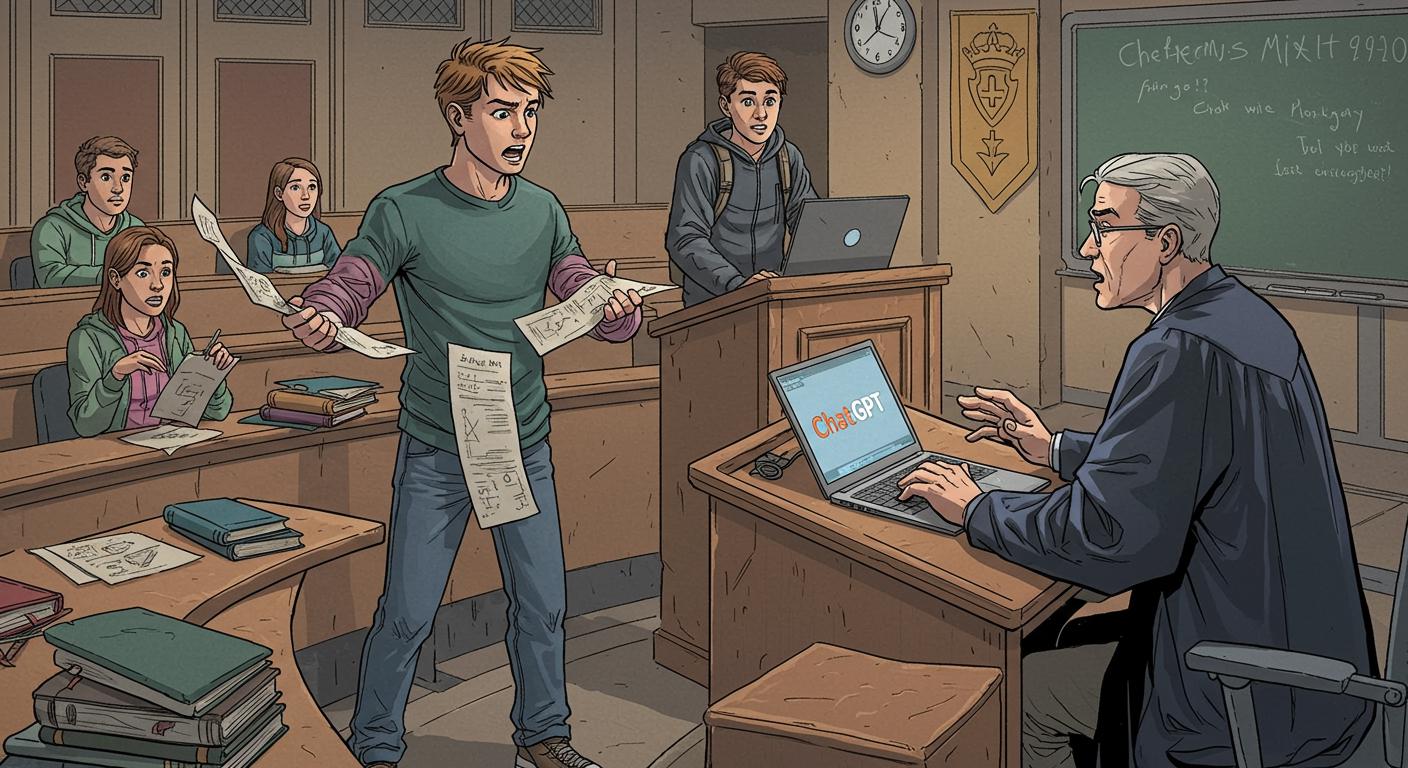Some stories land squarely in the uncanny intersection of higher education, AI, and consumer outrage—2025’s version of “student dissatisfied with their professor” now apparently involves ChatGPT. As reported by Fortune, a Northeastern University student demanded her tuition be refunded after catching her professor relying heavily on OpenAI’s chatbot for class material. The episode, which quickly generated headlines and discussion, highlights just how tangled the relationship between humans and their digital helpers has become.
AI on the Syllabus, Receipts in Hand
Described in the Fortune report, the student was “not happy” about her professor’s usage of AI, and her reaction escalated from discontent to a formal tuition refund request. In a detail also highlighted by Yahoo News, the student was reportedly “livid” after discovering her instructor’s apparent dependence on ChatGPT, stoking broader debates among peers about what, precisely, tuition is meant to cover.
Neither outlet delves into the exact mechanics of how the professor’s reliance on ChatGPT was discovered. Speculation remains—perhaps there were telltale turn-of-phrase glitches, or maybe canned responses that felt suspiciously inhuman? Regardless of the method, the crux of the student’s argument seems clear: if the professor substitutes AI for personal insight, does the price of education need to reflect that division of labor?
Professorial Paradox: Bots or Brains?
Both Fortune and Yahoo document how this reversal throws light on academic irony. Universities have spent months, if not years, fortifying honor codes and running digital dragnets to spot student assignments written by AI. Now, with reports surfacing that faculty might be streamlining their own duties with the assistance of language models, it begs the question—are students entitled to a partial refund when they receive a curriculum assembled by bot rather than by hand?
While neither report indicates this is a widespread trend, the story surfaces real anxieties. Is a tuition bill funding mentorship and original thought, or is it increasingly underwriting the clever deployment of generative AI? If so, would an itemized receipt eventually include “ChatGPT consulting fee: $0.00 (value not guaranteed)”?
A Refund for Modern Times?
The Yahoo article underscores the novelty—and nerve—of a student demanding money back for a professor’s AI shortcutting. Is this a one-off moment of frustration, or does it point to a new era where classroom authenticity is just another line-item expectation? If lectures and materials are indistinguishable from AI output, will students start hunting for more examples of robo-teaching, receipts in hand, ready for the next refund request?
It’s unlikely professors everywhere are setting their notes to “auto-generate,” but the mere existence of stories like these rattles the definition of value in education. As Fortune notes, it stirs up truly modern questions: How much of teaching, especially the day-to-day mechanics, can be credibly outsourced before the human element disappears? Would campuses ever consider transparent rules for when—if ever—algorithmic help is allowed?
The Blurry Frontier
Ultimately, nobody emerges as the definitive winner in this patchwork mess of 21st-century learning. If students must now judge whether knowledge is “professor-prepared” or “AI-prepared,” perhaps the boundaries between scholarship, customer service, and digital automation need sharper lines. Or—more weirdly—maybe they’re destined to blur entirely.
As the outlet reports suggest, higher education’s uneasy alliance with technology remains a work in progress. For now, it’s anyone’s guess whether a tuition refund for “services outsourced to ChatGPT” is a glitch in the matrix or merely the start of something stranger. In a year full of digital double-takes, this episode may just become the gold standard for academic oddities: when even educators are tempted to metal-bend the very machinery they warn students against, what happens next?







